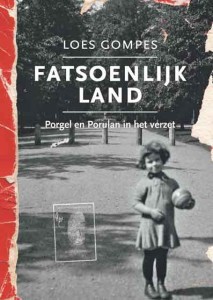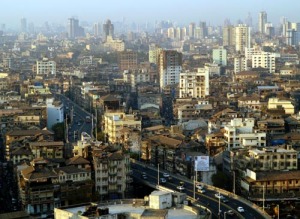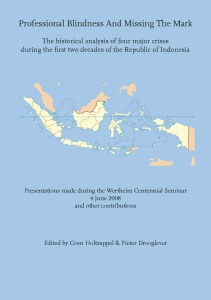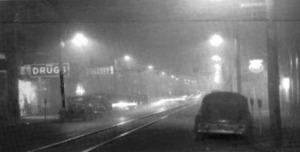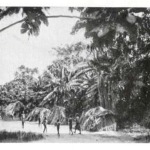Fatsoenlijk land ~ Inhoudsopgave
Fatsoenlijk land – Porgel en Porulan in het verzet van Loes Gompes Het boek verscheen in 2013 bij Rozenberg Publishers – ISBN 978 90 361 0350 3 – Met DvD van de documentaire Fatsoenlijk land (Lumen Film – 60 min.)
Nu online:
Proloog ~ Verzet in twee werelden
Athene, Rome en Jeruzalem in Alkmaar
De Duitse inval en het ontslag van de vaders
De PP-groep
De onderduikers
De Vrije Groepen Amsterdam
Porgel en Porulan in documenten en voedsel
Bevrijding
Bevrijding – Foto’s Jan Hemelrijk
Epiloog
Dankwoord
Jan Hemelrijk gaf de groep de naam PP-groep. Dat gebeurde bij de oprichting van de Vrije Groepen Amsterdam (VGA) in 1944 toen elke groep een naam moest kiezen. Je zou kunnen denken dat het een verwijzing is naar Potasch en Perlemoer, de twee kibbelende joodse zakenlieden uit de bekende gelijknamige vooroorlogse volkskomedie. Maar dat was niet het geval. Jan liet zich inspireren door de ‘porgel’ en de ‘porulan’, fantasiebeesten in het clandestien verschenen nonsensrijm De Blauwbilgorgel (1943) van Cees Buddingh’.
De blauwbilgorgel
Ik ben de blauwbilgorgel,
Mijn vader was een porgel,
Mijn moeder was een porulan,
Daar komen vreemde kind’ren van.
Raban! Raban! Raban!
Ik ben de blauwbilgorgel,
Ik lust alleen maar korgel,
Behalve als de nachtuil krijst,
Dan eet ik riep en rimmelrijst.
Rabijst! Rabijst! Rabijst!
Ik ben de blauwbilgorgel,
Als ik niet wok of worgel,
Dan lig ik languit in de zon
En knoester met mijn knezidon.
Rabon! Rabon! Rabon!
I
Ik ben de blauwbilgorgel,
Eens sterf ik aan de schorgel,
En schrompel als een kriks ineen
En word een blauwe kiezelsteen.
Ga heen! Ga heen! Ga heen!
Cees Buddingh’ (1918 – 1985)
Naomi Ng & Sofie Buch Hoyer ~ Hong Kong’s Sky Slums Highlight Wealth Gap
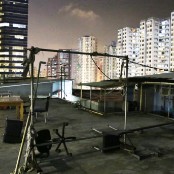 Hong Kong (CNN) January 2015. With an unrestricted, panoramic night view of the city’s twinkling skyline and the breezy air right outside the front door, a 15th floor penthouse apartment ticks all the boxes for a million-dollar property in the heart of Hong Kong.
Hong Kong (CNN) January 2015. With an unrestricted, panoramic night view of the city’s twinkling skyline and the breezy air right outside the front door, a 15th floor penthouse apartment ticks all the boxes for a million-dollar property in the heart of Hong Kong.
But there’s a catch.
Fung, 59, who prefers not to divulge his full name, lives in an illegal rooftop slum — a 75-square-feet shack just big enough to host a bed, a cupboard, and everyday knick-knacks thrown pell-mell in the dusty room. The rent costs $1,700 Hong Kong dollars (US$220) a month.
Read more: http://edition.cnn.com/hong-kong-rooftop
Aparna Piramal Raje – Why And How Cities Succeed
livemint.com. January 2015. Mumbai: Edward Glaeser’s best-selling book Triumph of the City is an ideal starting point for anyone interested in learning about urbanization. The book examines cities across the world and describes why and how “urban spaces make us human”. An economics professor at Harvard University, Glaeser was in New Delhi to speak at the London School of Economics’s Urban Age Conference. On the sidelines of the conference, he spoke about how cities succeed. “I think triumphant is empowering the citizens to make their own choices, enabling them to find economic success and have freedom. Different cities have different dimensions. Singapore is mind-bogglingly well-run, but it can also be a little sterile, and certainly it does not enjoy perfect freedom from every dimension. Rio is a magnificent city but certainly not particularly well-run; it has huge problems of crime. Many Northern European cities are glorious in terms of their combination of prosperity and equality, but they are also not necessarily great at being inclusive to new residents, and can be very expensive. So, I don’t see one triumphant city,” Glaeser explains.
Read more at: http://www.livemint.com/Why-and-how-cities-succeed
Professional Blindness And Missing The Mark ~ The Historical Analysis Of Four Major Crises During The First Two Decades Of The Republic Of Indonesia
Now complete online: Professional Blindness And Missing The Mark ~ The Historical Analysis Of Four Major Crises During The First Two Decades Of The Republic Of Indonesia.
This book contains six captivating articles about decisive moments in the first two decennia of the Republic of Indonesia’s existence (1945-1965); one per chapter with an introduction. They were presented at the memorial in honor of Professor dr. Wim Wertheim’s centennial birthday in 2008 – the doyen of post-war Dutch Indonesia research.
Each chapter explores a significant event from that era and was written by experienced researchers – Mary van Delden, Saskia Wieringa, Ben White, Pieter Drooglever and Coen Holtzappel – making use of source material that for the most part has been neglected by previous research. The analyses of the material reveal the new Republic’s struggle to bring together, and keep together, the colonial heritage of the Dutch East Indies in one independent and productive Republic of Indonesia. The foundation of a domestically, across the archipelago, and internationally accepted national government, as well as obedient regional governments and obliging armed forces, were deciding factors in this struggle.
Violent confrontations between armed forces and the communist party PKI took place in 1948 during the Indonesian National Revolution, as well as in 1965 after the Republic had already been independent for 14 years. The dividing issue was the power balance between politics and army top in state, government and land. A rigorous break with the past was made in 1965, which saw the installation of a junta regime under the leadership of General Soeharto that stayed in place for the following 32 years. Democracy had to wait until the army top made sure every part of politics and armed forces was finely adapted to work with the other. Not until then would the clock of government, production and control be fully set.
The articles reveal a blind spot in Western research of Indonesian developments in the discussed period; research that from 1965 onward was further, and permanently, influenced by the Indonesian army’s view. The Cold War raged domestically as well as abroad.
CONTENTS
Coen Holtzappel – Preface
Mary van Delden – Internees from the Republic
Coen Holtzappel – The year 1948 and the Madiun affairs, a year of cheat and rumours
Pieter Drooglever – Papua Nationalism. Another blind spot
Coen Holtzappel – The Thirtieth September Movement of 1965, as viewed by the perpetrators – Part One
Coen Holtzappel – The Thirtieth September Movement of 1965, as viewed by the perpetrators – Part Two
Coen Holtzappel – The Thirtieth September Movement of 1965, as viewed by the perpetrators – Part Three
Saskia Eleonora Wieringa – Sexual Slander And The 1965/66 Mass Killings In Indonesia: Political And Methodological Considerations
Ben White – The anthropologist’s blind spot: Clifford Geertz on class, killings and communists in Indonesia
Coen Holtzappel & Pieter Drooglever – Postscript
About the authors
Het ontrafelen van criminele carrières van hoog-risico jongeren
“Stel je voor dat je wordt geboren in een sociaal achtergesteld gezin. Het opleidingsniveau van je ouders is laag en hun inkomen evenzeer. Daarbij zijn alcoholmisbruik, drugsgebruik en werkeloosheid bekende problemen in jouw familie. Door deze omstandigheden zijn je ouders niet instaat om voldoende te investeren in jouw toekomst. Al sinds de basisschool heb je het gevoel dat je achterloopt. Huiswerk kost veel moeite en je cijfers zijn laag. Op de middelbare school verandert er niet veel. Je cijfers blijven laag en je wordt vaak de les uitgestuurd.
Buiten school gaat het ook niet echt goed. Naar mate je pubertijd vordert maak je steeds meer ruzie met je ouders en hang je voornamelijk rond op straat. Op gegeven moment ga je te ver en word je gearresteerd door de politie. Geen probleem denk je in eerste instantie. Veel van je vrienden zijn ook een keer gearresteerd en je hebt niet het idee dat dit grote gevolgen zal hebben. In de maanden die volgen word je nog een paar keer gearresteerd en uiteindelijk besluit de kinderrechter dat je naar een besloten jeugdinstelling moet. Hier aangekomen tref je andere jongeren aan die vergelijkbare problemen hebben. Tijdens je verblijf in de jeugdinstelling worden je gedragsproblemen behandeld en krijg je laaggeschoold onderwijs. Rond je 17de levensjaar loopt je verblijf in de instelling teneinde en loop je de poort uit naar een volwassen leven.”
Introductie
De situatie die hierboven wordt geschetst is karakteristiek voor een kleine groep jongeren in Nederland die al vanaf jonge leeftijd grote problemen kennen op verschillende domeinen. Het doel van dit artikel is om de bevindingen van het proefschrift Disentangling Criminal Careers for Disadvantaged Youths op een toegankelijke manier te beschrijven zonder afbreuk te doen aan de gecompliceerdheid van de conclusies. Het doel van het onderzoek was om een conceptueel en empirisch raamwerk te ontwikkelen om de effecten vast te stellen van een aantal verschillende facetten, voor jongeren met een “achtergestelde jeugd”, op uitkomsten gedurende het volwassen leven. We onderzochten of de cognitieve en sociale vaardigheden, het opleidingsniveau en contact met justitie de volwassen sociaal-economische uitkomsten beïnvloedden. Tegelijkertijd erkenden we dat transities gedurende volwassenheid, zoals transities van en naar werk en intieme relaties, de daaropvolgende volwassen uitkomsten kunnen beïnvloeden. De focus van het proefschrift ligt op het verklaren van de uitkomst “criminaliteit” voor adolescenten en volwassenen, maar verschillende andere sociaal-economische uitkomsten worden ook onderzocht. In het bijzonder onderzoeken we ook arbeidsmarktuitkomsten, uitkeringen, drugsgebruik en intieme relaties.
In totaal worden er ongeveer 4.000 jongeren jaarlijks geïnstitutionaliseerd in een straf- of jeugdzorg instelling in Nederland (CBS, 2013). Op basis van hun vroege contacten met justitie en/of hun gedragsproblemen, kunnen deze jongeren worden beschouwd als behorende tot een kansarme subgroep van jongeren die een hoog risico hebben voor het plegen van criminaliteit, het vaak lastig hebben op de arbeidsmarkt en relatief vaak de ontvangers zijn van sociale uitkeringen (van der Geest, 2011; Mesters, van der Geest en Bijleveld, 2014; Verbruggen, 2014). Tijdens hun verblijf in de instelling worden ze behandeld voor hun gedragsproblemen en krijgen ze laaggeschoold onderwijs aangeboden. In hun late tienerjaren verlaten deze jongeren vertrekken meestal de instelling en en begint hun “volwassen” leven. Gezien hun moeilijke jeugd hebben ze vaak moeite met deze transitie naar volwassenheid (Osgood, Foster, Flanagan en Ruth, 2005). Ons doel is om aan te geven op wat voor soort kenmerken van deze jongeren interventies het beste kunnen aangrijpen om de volwassen sociaal-economische uitkomsten van deze jongeren te verbeteren.
De ontwikkeling van een raamwerk dat in staat is om de sociaal-economische uitkomsten voor volwassenen te verklaren in termen van vroeggemeten factoren en andere uitkomsten gedurende het volwassen leven is een uitdagende taak. In dit proefschrift proberen we deze puzzel stap voor stap te benaderen. Het raamwerk is gebaseerd op inzichten uit de criminologie, sociologie, economie en psychologie. De theorieën die uit deze disciplines naar voren komen vormen het conceptuele raamwerk dat wordt vertaald naar een empirisch model in wiskundige formulering. Deze vertaling maakt het mogelijk om het conceptuele raamwerk te testen met behulp van observationele gegevens en econometrische methoden. Read more
The Classics Library
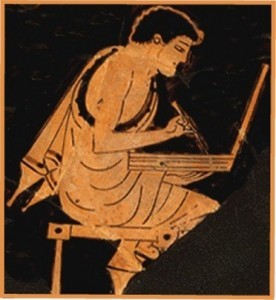 The site for Classics teachers everywhere. Share news and resources. Promote events and teaching positions. Reach out to colleagues in the discussion groups. Register and Login to access all areas and menus.
The site for Classics teachers everywhere. Share news and resources. Promote events and teaching positions. Reach out to colleagues in the discussion groups. Register and Login to access all areas and menus.
http://www.theclassicslibrary.com/
The Classical Anthology
The Classical Anthology is a collection of beautiful, inspiring and memorable passages from Greek and Latin literature, each with a translation so that anyone can enjoy them and share them. It includes anything written in Greek or Latin, from earliest times to the present day.
The anthology is for anyone to enjoy and anyone can contribute, whether you have a Doctorate, did Latin for a year at school, or none at all. The more contributions the better.
Go to: http://classicalanthology.theclassicslibrary.com/
- Page 2 of 3
- previous page
- 1
- 2
- 3
- next page
